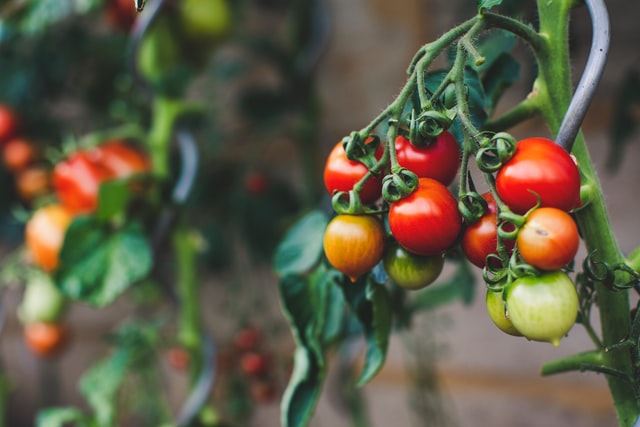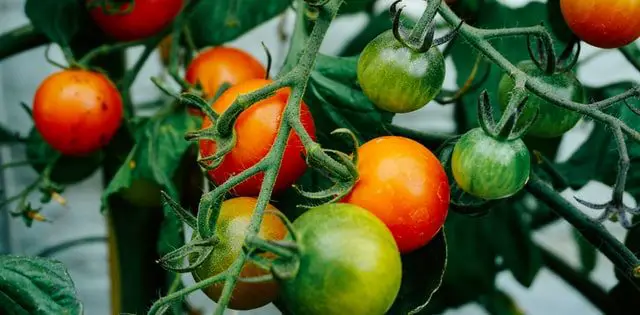A bad neighbor is always an awful experience. This doesn’t just work with humans but also with plants. Several plants work well together, and there are certain plants you need to keep apart. Matching the two plants can be difficult if you don’t know what goes together.
If you’re confused about the right plants to plant with tomatoes, you’re in the right place. This article will explore the plants you need to keep away from tomatoes. Without further ado, let’s dive into the plants you shouldn’t plant with tomatoes to ensure healthier tomato plants.
Contents
5 Plants to not Plant with Tomatoes
If you’re wondering what not to plant with your tomatoes, this article will reveal all you need to know.
Cabbage
You shouldn’t plant cabbage and all its relatives like kale and broccoli next to tomatoes. These two plants are enemies because cabbage can stunt the growth of your tomato plants. Additionally, cabbages are heavy feeders and require many nutrients throughout the growing season. Of course, the same goes for your tomatoes, but they are slight compared to cabbages.
Corn
This plant could turn out problematic when you plant it next to tomatoes. The corn pest, corn earworm, is quite destructive for corns and tomatoes alike. They will tunnel into the tomato fruits to eat the stems and leaves. They usually feast on the tomato flesh from inside, making it inedible. The worst part is that it’s difficult to remove once they burrow into the plant.
Fennel
Tomatoes don’t fare well close to fennels. Most gardeners would agree that fennels belong in a garden or pot of their own. However, the roots of fennel usually release a chemical that can inhibit the growth of your tomatoes. That’s why the fennel doesn’t have a lot of friends in the gardening world.
Potatoes
A potato belongs to the nightshade family like tomatoes. However, they can cause many diseases to affect your tomatoes. This is because they’re susceptible to the same diseases, and most of these diseases spread through the soil. So when you plant the two together, there’s sure to be a colossal disease problem.
Walnuts
You also need to keep walnuts away from your tomato plants. It is on the list of what not to plant with tomatoes because they’re allelopathic. This is a process where plants release chemicals that affect other plants’ growth. Additionally, tomatoes are susceptible to walnut wilt disease. Between these two adverse effects, it’s simply best to keep them apart.

What Determines Plant Incompatibility
Unfortunately, although we wish otherwise, some plants don’t mix well. A common reason for this is due to different growing conditions. While some plants prefer moist soil, others require minimal watering to survive. Therefore, both plants cannot survive as one plant will be underwatered, or the other will be overwatered.
Additionally, two companion plants need to have similar requirements and shouldn’t obstruct each other’s light source. For example, tomatoes tend to overshadow other plants. The same goes for fertilizers, as one nutrient-hungry plant can damage another plant that doesn’t require frequent fertilizing.
Some plants are usually so incompatible that they could harm each other just by being next to each other. For example, some plants attract pests that could target other plants. Additionally, some plants emit chemicals that could inhibit the other plant’s growth. When both plants share diseases, it could alter the soil’s components and reduce its nutrients. Additionally, these diseases could negatively impact the flavor of the tomatoes.
You don’t want a bad neighbor for your tomatoes as it could ruin your hard work. The next section covers the top plants you should keep far away from your tomatoes.
Conclusion
Companion plants can either help your plant grow or stunt it. Tomatoes are pretty sensitive and require the ideal soil condition and care. Therefore, you need to know what not to plant with tomatoes to prevent harm to the plant. These few plants are incompatible with your tomato plants and should be kept away as they spell disaster for tomatoes.
- How to Get Potatoes to Sprout Eyes: Detailed Growing Guide with 3 Options - July 31, 2023
- Weight of a Medium Potato: Revealed in Detailed Guide - July 29, 2023
- Maris Piper Potatoes: 9 Substitutes You Should Know About - July 27, 2023
Hello! I’m Jessica Zander, a garden coach and consultant based in the Boston area (zone 6b), offering virtual consultations across the country and Canada.
I’ve been passionate about gardening since the early 1990s, and in 2022, I launched You Can Do It Gardening to empower individuals to feel more confident in their gardening endeavors.
Following a 30-year career in nonprofit finance and operations, I transitioned out of that field in mid-June of 2023 due to the growing demand for coaching services. Interestingly, my years of presenting financial statements to boards and finance committees proved to be valuable experience for teaching people about gardening! I enjoy sharing skills, providing guidance and suggestions, and collaborating efficiently with clients to make significant improvements to their outdoor spaces, both small and large. I also regularly teach at the Arlington Continuing Education and Cambridge Adult Education.
My approach is direct and practical, akin to Mary Poppins, but tailored to your garden. Clients find satisfaction in saving money and taking pride in their own gardening achievements.


Add comment